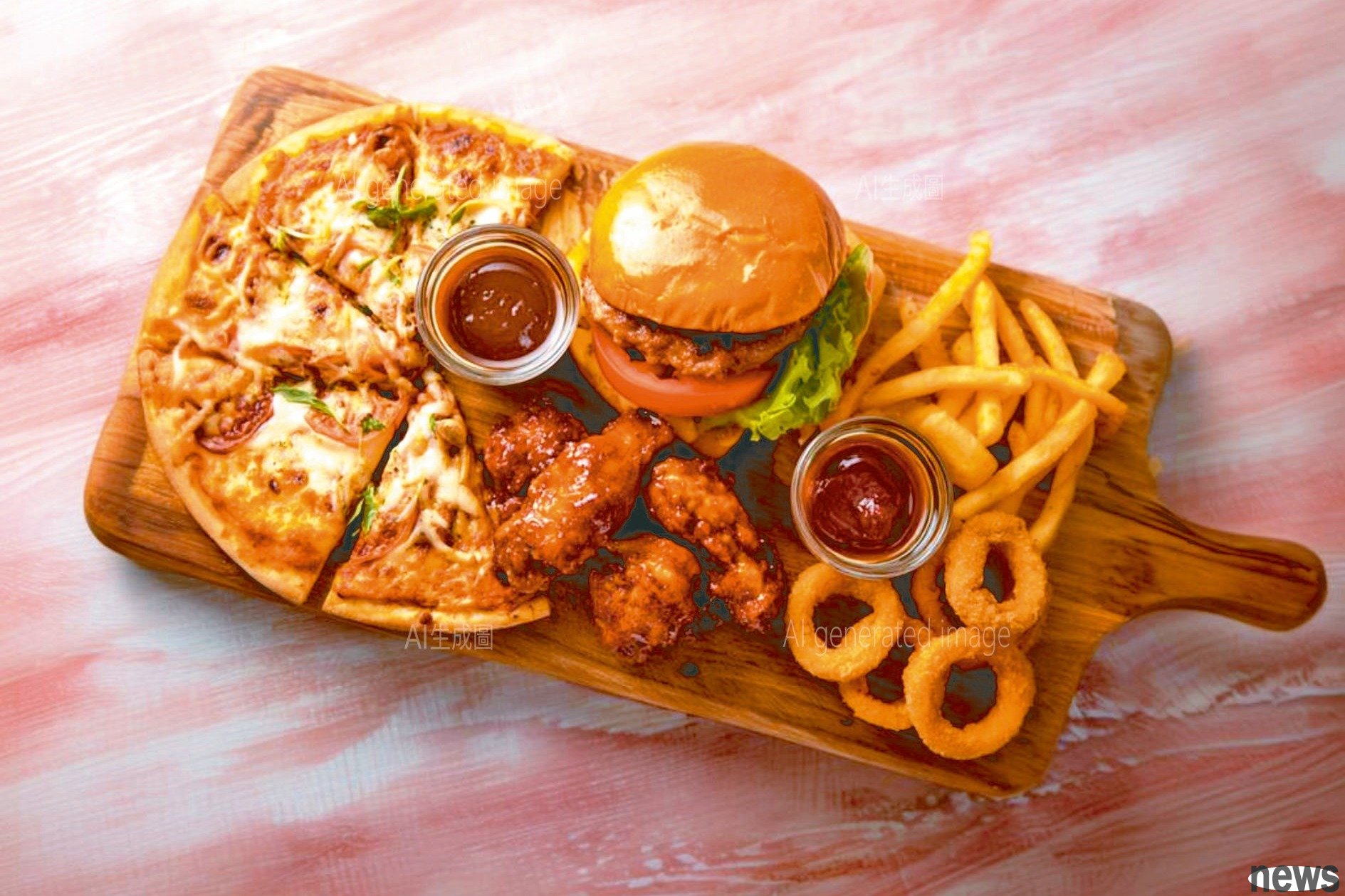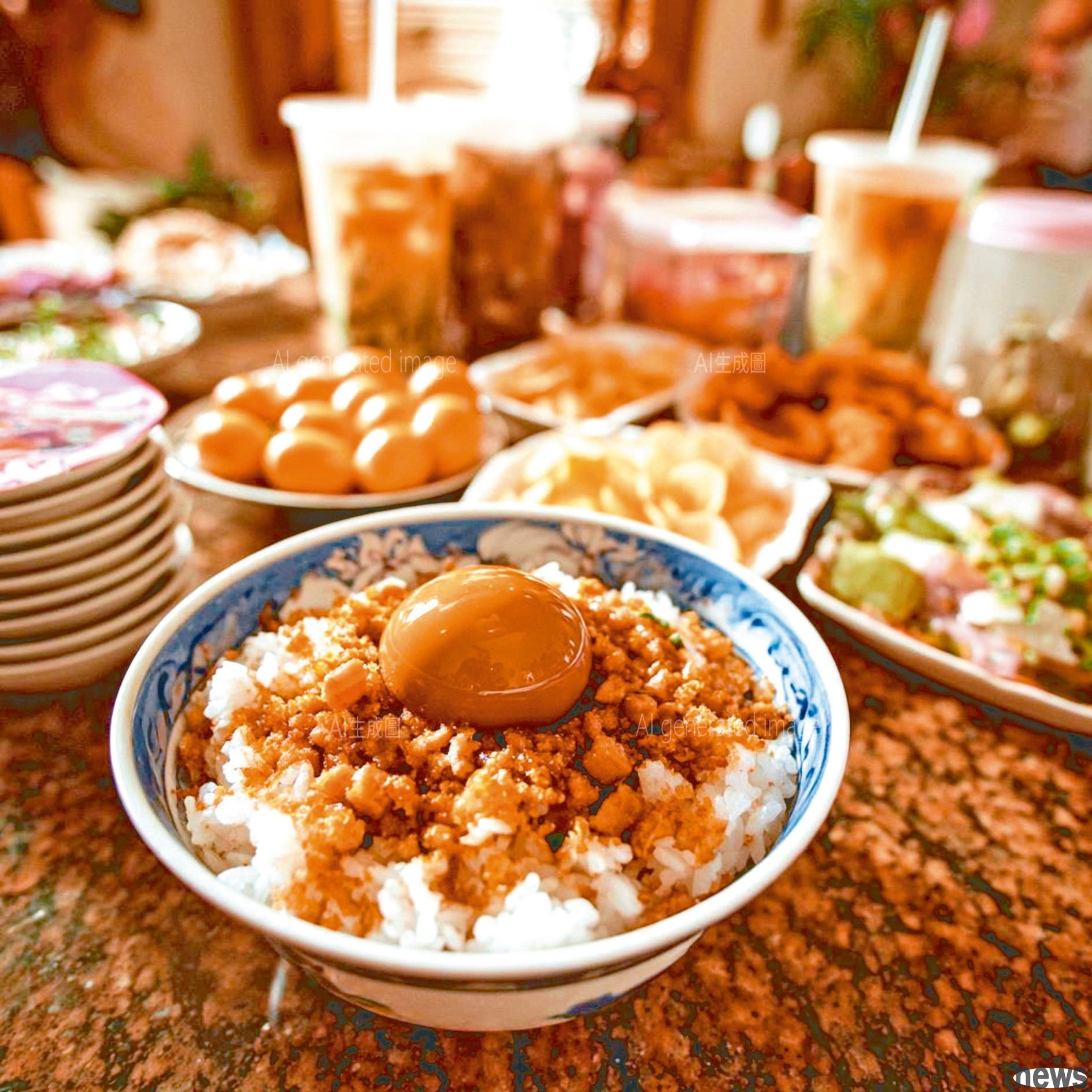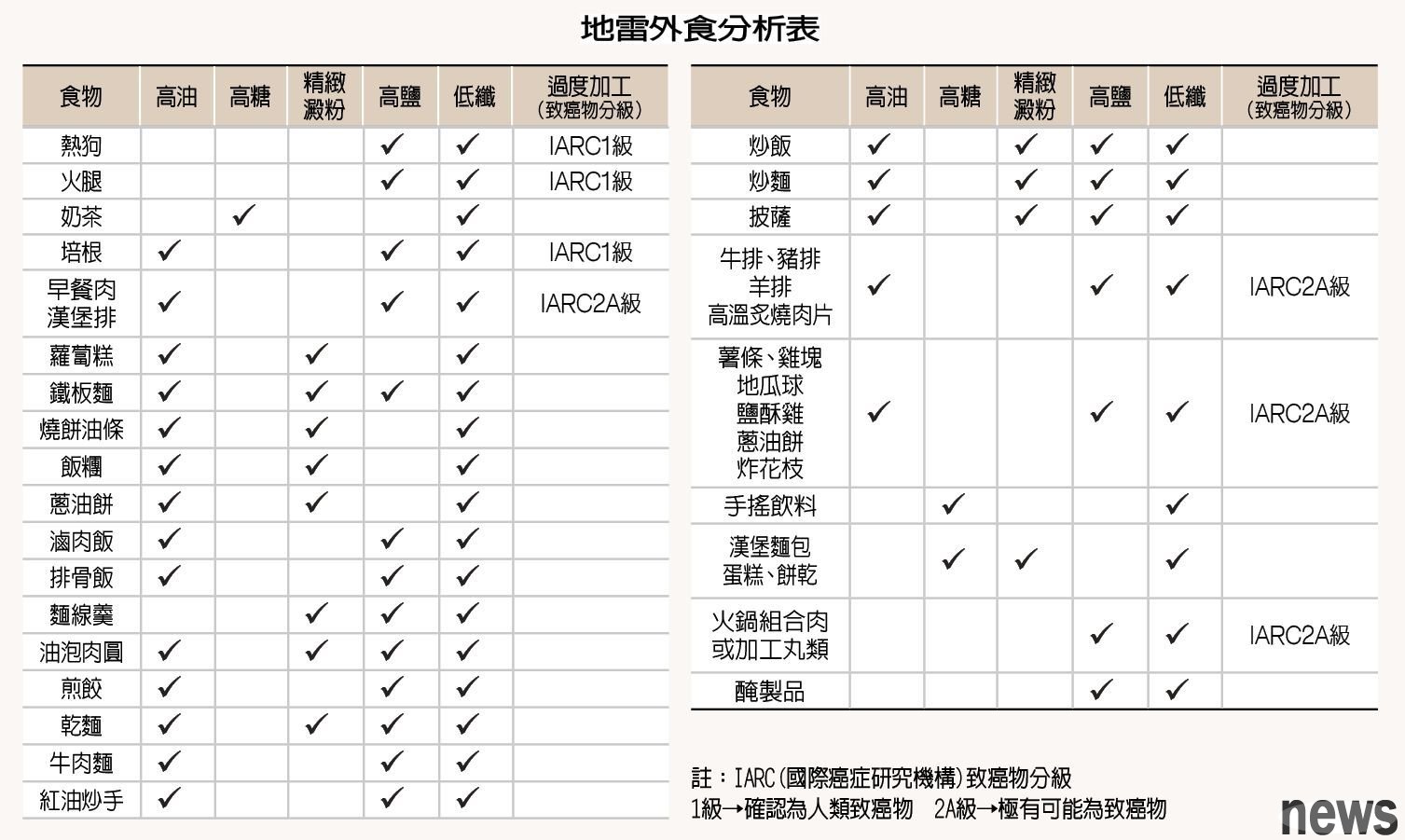
Last year, a research from the National Taiwan University School of Public Security found that the "7th-year student" had the highest incidence of kidney-induced direct kidney cancer and had significant generational effects. Students analyzed that it was related to the degree of westernization of Taiwan's diet reached a peak in the 1980s.
When discussing the surge in cases of a certain disease in recent years, "Westernization of diet" is often regarded as one of the culprits. What exactly is the definition of Westernization of diet? How many Westernized landmines are hidden in our three meals without knowing it?
From the fast food wave in the 1980s to the food on your plate today, what are the diseases and dangers of hiding?
Due to the development of globalization, the post-health syndrome brought about by westernized diets has been a topic that many Asian countries have met in the past 20 years. Research from the National Taiwan University School of Public Security has found that westernization of diet increased the incidence of cancer in the kidneys. Further analysis has found that the seventh-year-old birth after the 1980s coincided with the first year of westernization of diet, and the contact time was far higher than that of other generations, and it was the group with the highest risk of disease.
Research: In the 1980s, the incidence of 7-year-old dysfunction cancer is high.The 1980s was the key era when Taiwan officially changed from agricultural society to industrial and commercial society. The diet style was also cooked from meals at home, with rice as the staple food, and began to quickly turn into external food. The earliest out-of-dinner food started with "breakfast". Later, after the increase in the employment rate of women and the severe removal of quit, nightlife gradually became popular, and restaurants were everywhere. The rate of out-of-dinner food for Chinese and dinners increased. Currently, the average out-of-dinner food rate for three meals in Taiwan exceeds more than 60%. The 1980s was also the time when the McDonald's official flagship was officially launched in Taiwan. On January 28, 1984, Taiwan's first McDonald's was set up on Minsheng East Road, and a wave of "fast food" trend was set off.
Li Wenzong, professor at the Institute of Epidemiology and Prevention Medicine at the National Taiwan University Public Security University, published "The Long-term Trends of the Ring of Improperty in Taiwan: The Interaction of Surveillance and Generation Effect" at the end of last year. It found that the Ring of Improperty in Taiwan began to rise in the 1920s and reached the highest point of cancer in the 1980s. Li Wenzong analyzed that it was related to the peak of Taiwan's westernized diet in the 1980s. The carcinogenic risks brought by diet in that era were consistent with the West and were also the highest risk. Although the cancer risk among ethnic groups born after the 1980s was still rigorous, they still had risks.
Westernized diet helps cancer of the brain, but it still has a great relationship with genes.Choosing high-oil, high-salt, high-sugar, and low-fiber diets for a long time will significantly increase the chance of obesity, while the World Health Organization (WHO) has proved that obesity will increase risks of type 2 diabetes, hypertension, hyperlipidemia, kidney sclerosis, tumor cancer, breast cancer, and adenocarcinoma.
Wang Wei, attending physician of the Department of Irregular Surgery at Taipei Medical University, said that although high-oil, high-salt, high-sugar, and low-fiber diets are proven to increase the chance of developing Irregular cancer, the occurrence of Irregular cancer is still the most related to "genes", and diet is a secondary risk.
In 2022, the British Medical Journal (BMJ) published a study that traced the diet of more than 200,000 men and women in the United States for 28 years. The results found that men who often eat super-processed foods have a 29% increase in risk of developing brain cancer. The results of this study show that because the hormones in men are different from those in women and hormones, eating processed foods for a long time is more likely to cause cancer of the brain.
Most of the young patients have a family history and should undergo blood tests for stool diarrhea from the age of 40.Wang Wei said that although patients with brain cancer in Taiwan have a tendency to become lighter, patients who are younger than 30 years old account for only 5% of the total patients, or even lower. Usually, most of the patients who suffer from brain cancer at an age of age have a family history of cancer and usually develop diseases before and after the age of 40.
Although westernization of diet can increase the chance of developing kidney cancer, those with family history need to pay more attention to it. They should start bleeding and blood tests at the age of 40. If there is no family history, it is recommended to start regular screening at the age of 45.
It is fragrant and sweet, making people want to eat it again and again. There are NG foods in Taiwan, Korean and Japanese styles.Su Xiuqing, director of the Nutrition Department of the Affiliated Hospital of Taipei Medical University, said that common Westernized diets such as Hanbao, potato stew, fried chicken, bacon, fragrant, refined desserts, sugary drinks, etc. are all high-oil, high-salt, high-sugar, and low-fiber diets.
In contrast to its saying that westernization of diet will increase the chance of cancer, it is better to say that westernization of diet has affected all kinds of dietary patterns in the country. Whether it is Taiwanese, Western, Korean, or even Japanese, it may be high-oil, high-salt, high-sugar, and low-fiber diets.
Su Xiuqing said that because of the "scent" or sweetness, this type of food can stimulate the brain to release dopamine, which will make people want to eat one bite after another. It is not harmful to their health when they eat it every day. You must adjust the current eating method immediately, which has a certain difficulty. It is recommended to adjust from one of the three meals, at least one meal a day, and eat rice, vegetables, meat and other original foods, and gradually adjust the eating method to reduce the long-term harm of eating to health.

In the early years, Taiwan used "rice" as its staple food. After the Second World War, the United States provided a large amount of economic and military assistance to Taiwan. In Taiwan in the 1950s, it imported a large amount of flour, rice, etc. In the future, Taiwanese people's staple food has added noodles and bread in addition to rice. In addition, exchanges between Taiwan and the world have increased, and the introduction of foreign cuisine, fast food, etc., coupled with the increase in female participation, significantly increased the chance of foreign food, which has also accelerated the Westernization of Taiwan's diet.
Roasted meat, sausage …… High-flavored dishes often become popular snacks.Now, Taiwanese people have a wide range of options for their diet, whether it is American, Japanese, Korean, Vietnamese or Thai cuisine.. Su Xiuqing, director of the Nutrition Department of the Affiliated Hospital of Taipei Medical University, said that westernization of diets not only changes the way Taiwanese cuisine is used, but also affects cuisines around the world. Because high-oil, high-sugar and high-salt diets are fatal to humans, healthy cuisine may not be able to stay, but this kind of high-scented cuisine will eventually become a popular snack in the local area.
Su Xiuqing said that even if Taiwan’s snacks are not affected by the westernization of diet, the authentic tastes that are deeply remembered by people, such as oyster omelettes, pork omelettes, sauerkraut, etc. are all high-oil, high-salt and high-sugar products. In addition, Taiwan's food is too convenient. As long as you have a stomachache, there will be convenience stores or sauna as soon as you get off the floor, especially sauna. In order to sell convenient and attractive dishes, it is either fried or sauna, and it is not easy to find healthy original foods when eating outside.
Although it is gradually convenient stores or stews to sell original foods with healthy consciousness, the prices are relatively high. Su Xiuqing said that if the cooking method of Taiwanese snacks needs to be changed to a healthy one, it depends on the buyer's choice. Only when the public strives to change their daily diet can they have the opportunity to change the style of food provided by the seller.
She suggested changing from small places first, such as eating more vegetables in one of the three meals; then adjusting the drinks, changing from whole sugar to seven-quarter sugar, gradually reducing to sugar-free; finally, adjusting the staple food, changing from high-oil tart oil paste, refined powder, etc. to original foods such as rice, sweet potatoes, etc.
Breakfast: Chinese breakfast: Fried oil and sugary beansTraditional breakfast shops sell oily foods wrapped in oily foods. A oily food contains about 20 grams of fat, which is about 220 calories, which is equivalent to the heat of a bowl of rice. Although a wine can only contain about a quarter of the food, but it is paired with sugary beans or milk tea. Traditional breakfast shops do not have customized sugar-containing configurations. A cup of sugar contains about 10 sugar cubes. One cup of sugar can exceed the daily recommended intake of refined sugar.
Lunch: noodles or condom. Common fried food productsFor convenience, most people choose noodles or condom. If they do not deliberately choose healthy lunch boxes, most of the staple foods are fried foods or condoms. Similarly, the amount of fat is overpriced. When the amount of vegetables seems to be added, the amount is not enough to meet the amount of fruits and vegetables every day. For the cost, many side dishes are processed products, such as sweet and not spicy, etc., and the amount is "empty and hot".
Nest tea and dinner: Eat cakes in the afternoon. Have hot stir-fry and roasted dinners for dinner.Taiwanese dinners are eaten at home with a higher proportion than breakfast and lunch. At this time, there is a more chance to eat less salty and high-fiber dishes; but if you often need to have dinner at night, the heat, hot stir-fry, roasting, etc. are still high-oil, high-salt, low-fiber dietary patterns; coupled with the work pressure of modern people, there is also a "afternoon tea" between lunch and dinner. Just a piece of cake will make the sugar and fat super standard.
